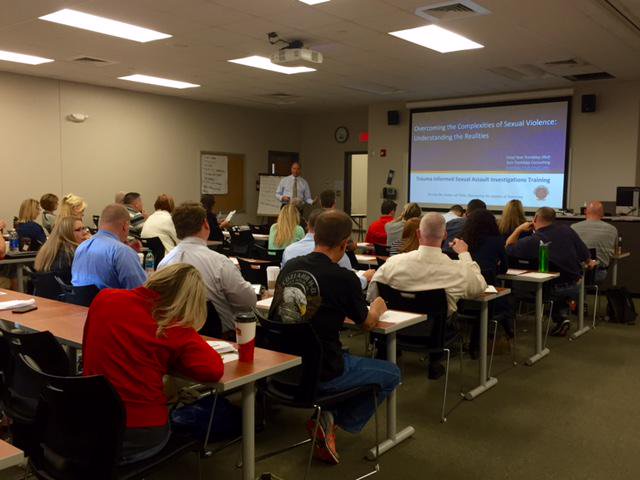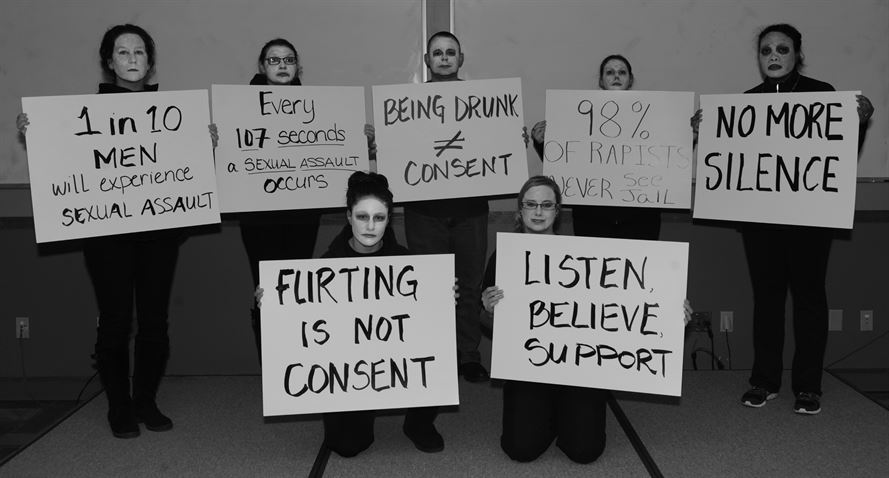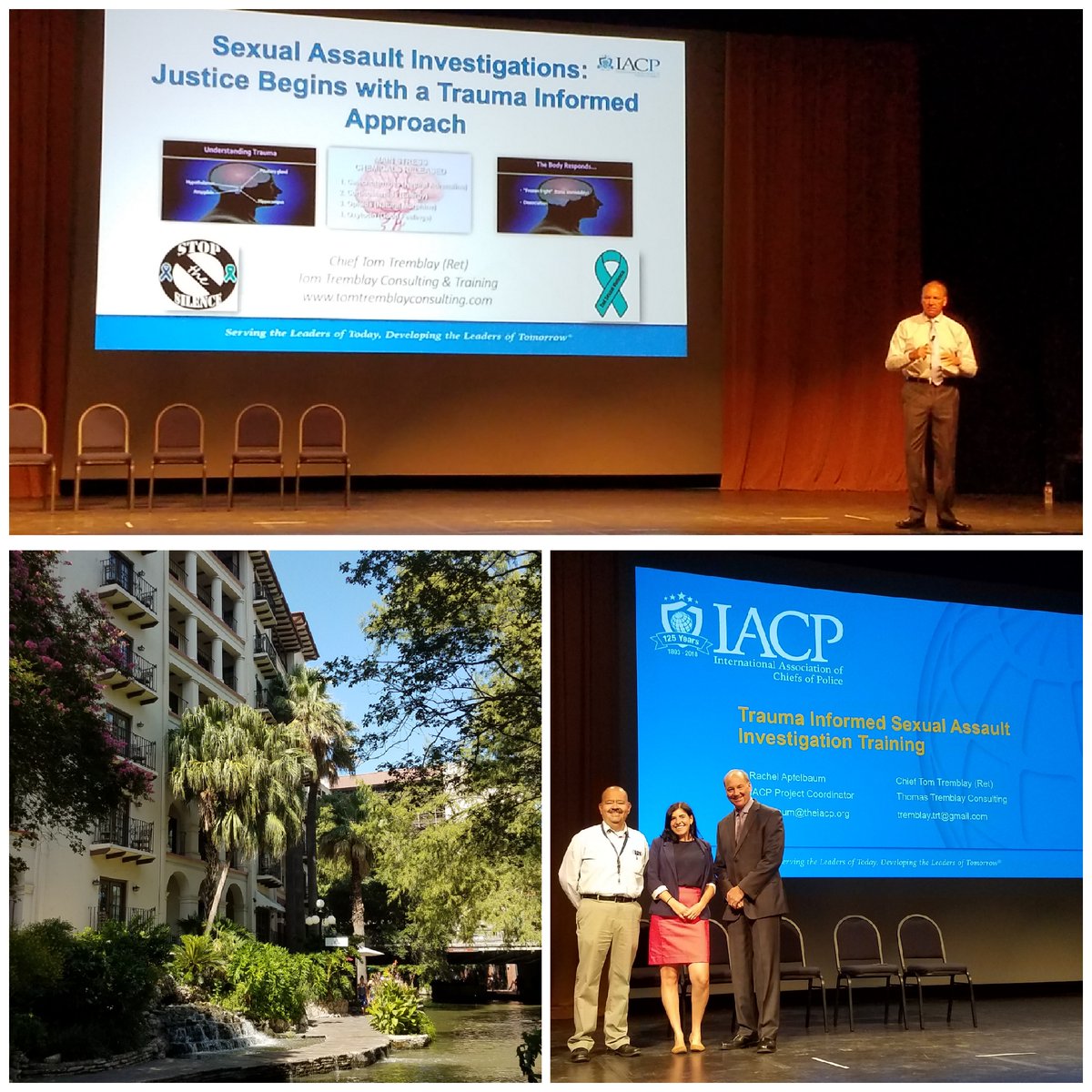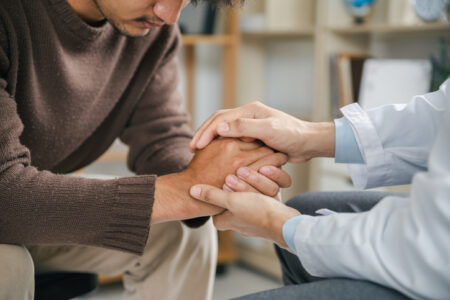
Share On Social!
Traumatic events, like sexual assault, physically change our brain, releasing stress hormones which influence perception, reaction and memory.
Yet, many law enforcement agencies have lacked the training opportunities, tools, resources, and support needed to effectively address these crimes and the traumatized victims, according to a report from the U.S. Department of Justice’s Office on Violence Against Women.
To raise awareness about the neurobiological impact of trauma and trauma-informed investigative strategies, the International Association of Chiefs of Police (IACP) created a two-day Trauma Informed Sexual Assault Investigation Training.
Sexual Assault in the US
One in three women and one in six men have experienced some form of contact sexual violence during their lifetime, according to the Centers for Disease Control and Prevention’s (CDC) National Intimate Partner and Sexual Violence Survey.
Of female rape victims, 41% occurred before the age 18.
In eight out of 10 cases of rape, the victim knew the perpetrator.

Beyond the criminal justice system, it is important to remember that sexual violence also has ripple effects on public health and education systems.
Trauma, like sexual violence, can have serious, lifelong consequences. When children experience trauma, they are at increased risk for developmental problems that affect health and employment in adulthood, as well as future generations.
Health care is 35% higher for women who were physically and sexually abused as children.
People living in poverty are among the most vulnerable to sexual violence, repeat-offenses and unpunished perpetrators.
However, for many reasons, over two-thirds of rape/sexual assault victims do not report the crime to police.
It’s even lower for child sexual abuse. Only 12% of child sexual abuse is ever reported to the authorities.
Some victims don’t report because they feel shame, fear retaliation, don’t understand what constitutes rape, and are afraid the police won’t believe them and won’t be able to do anything about it.
Among Latinos, fear of deportation is also a concern.
In Houston, the number of Latinos reporting rape is down 42.8% from the previous year, Houston Police Chief Art Acevedo reported to the Houston Chronicle in 2017.
Pervasive “rape culture” myths and frequent misinterpretations of traumatized victim’s behavior impact the pursuit of criminal justice.
“Many of the behaviors sexual assault survivors exhibit are often interpreted as indicators of a false report or are viewed as a weakness in a case, yet are in reality signs of trauma,” according to a blog on the Official Blog of the International Association of Chiefs of Police (IACP).
Thus, it is important help law enforcement better respond to traumatized victims while simultaneously holding offenders accountable.
Trauma Informed Sexual Assault Investigation Training
In 2013, the IACP began developing a training curriculum to increase officer’s understanding of the neurobiology of sexual trauma and the complexities of sexual assault investigations.
With support from the U.S. Department of Justice’s Office on Violence Against Women (OVW), the IACP created the two-day Trauma Informed Sexual Assault Investigation Training.

Between 2014 and 2017, the IACP conducted training for over 1,300 participants.
“Law enforcement can create stronger, more thorough reports for prosecution as well as increase the number of perpetrators behind bars by understanding trauma in the context of sexual assault and implementing trauma-informed investigative strategies,” the blog states.
In 2018, the IACP was refunded by the OVW to continue conducting trainings.
At the completion of the two-day training, law enforcement officers are able to:
- Describe how specific experiences impact victim trauma, memory, reactions and behavior and how officer interpretation of this behavior impacts sexual assault investigations.
- Explain how key decisions made by law enforcement impact the progression of a sexual assault investigation.
- Understand that victim disclosure often occurs in pieces over time and identify strategies for working with victims to facilitate trust and communication.
- Employ strategies that postpone judgment regarding the validity of a case until a thorough investigation is completed.
- Identify investigative methods and techniques that focus on offender behavior.
- Conduct victim interviews and document sexual assault cases utilizing physical, psychological and sensory evidence to effectively build a strong case.
- Recognize potential sources of officer bias and ways to mitigate its impact on reports.
- Make case coding and clearing decisions based on analysis of evidence identified through a thorough investigation.
Understanding the impact of victim trauma promotes victim healing and more reporting; better interviews and investigations; and greater offender accountability, thus public safety, according to an IACP presentation.
You can attend or host the Trauma Informed Sexual Assault Investigation Training. Contact Rachel Apfelbaum for more information at apfelbaum@theiacp.org or 800-843-4227 ext. 843.
You can also encourage your local law enforcement agency to integrate trauma-informed investigative strategies into department policies and procedures.
Additional resources from the IACP and OWV:
- Sexual Assault Training Video: Bringing Sexual Assault Offenders to Justice, IACP
- Sexual Assault Guidelines, IACP
- Sexual Assault Supplemental Report Form, IACP
- Sexual Assault and LGBTQ+ Communities, IACP
- Sexual Assault Policy and Training Guidelines, IACP
- Neurobiology of Trauma, Dr. David Lisak (ACASA)
- Article on Fight, Flight, or Freeze Response (Tonic Immobility), Dr. Rebecca Campbell (Joyful Heart Foundation)
- Study on Tonic Immobility During Sexual Assault, Anna Möller
- Sexual Assault Incident Reports: Investigative Strategies
- Sexual Assault Response Policy and Training Content Guidelines
- Video: Bringing Sexual Assault Offenders to Justice
- Responding to Sexual Violence in LGBTQ+ Communities: Law Enforcement Strategies and Considerations
- Addressing Sexual Offenses and Misconduct by Law Enforcement
- Supervisor Report Review Checklists
- The Crime of Domestic Violence Training Video
- Intimate Partner Violence Response Policy and Training Guidelines
- Deliberations from the IACP National Forum on Body-Worn Cameras and Violence Against Women
By The Numbers
142
Percent
Expected rise in Latino cancer cases in coming years



